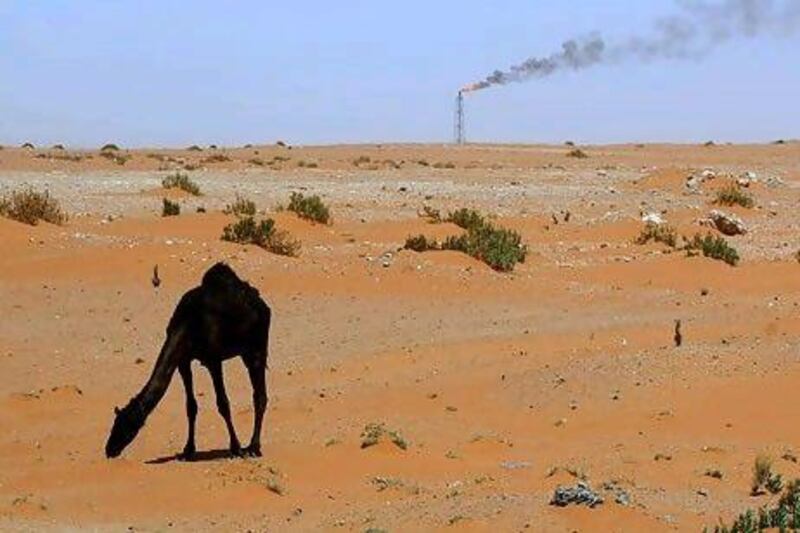Opec's price hawks have fired the opening shots ahead of a meeting on Thursday, saying Saudi Arabia is pumping too much oil and should rein in production.
Concerns over the fragile world economy and the forthcoming sanctions against Iran have prompted the kingdom, Opec's biggest producer, to raise output to its highest in decades, lowering the price of Brent, the European crude benchmark, from March's four-year high of US$128 a barrel to yesterday's $100.
Iran, which is scheduled to come under a full European Union oil embargo next month targeting its nuclear programme, criticised Saudi Arabia ahead of the Opec meeting, when ministers representing the group's 12 members are due to hash out a collective output target.
"Saudi Arabia and its two allies [Kuwait and the UAE] are the biggest violators of the Opec [quota]," Mohammad Ali Khatibi, Iran's Opec governor, was quoted by Iran's Fars News Agency as saying.
"It is not right that two or three countries compensate for a country that is targeted by sanctions."
Hugo Chávez, the Venezuelan president, also spoke of a quota violation, while Iraq's oil minister said a price between $100 and $120 a barrel was acceptable.
"It's very clear there is a tremendous surplus that has led to this severe decline in prices in a very short time span," Abdul Kareem Al Luaibi, the Iraqi oil minister, told news wires in Vienna.
"This will not serve anyone."
Yet despite pressure from some members to cut production, Opec is expected to keep its 30 million barrels per day (bpd) ceiling unchanged, according to a poll of 20 traders and analysts by Bloomberg News.
That would mark the first time in a decade that Opec has not acted to cut supplies after a price drop of 10 per cent or more during the three months before its meeting. Since March, prices have fallen 21 per cent.
The difference this time around is the fragile state of the world economy. Developed countries are enjoying sluggish economic growth at best, Greek elections on Sunday could help to decide if it will become the first country to leave the euro zone, and even China, the world's biggest oil consumer, is seeing growth slow.
"With the global economy the way it is, they would not be anxious to get prices back up too high," said Sadad Al Husseini, the founder of the consultancy Husseini Energy in Riyadh.
"On the other hand they certainly don't want prices to drop below the $100 per barrel for Brent, because that's the floor they've been looking for."
The disagreement between the price hawks and doves sets the stage for a meeting potentially as fractious as the group's gathering last June, when ministers emerged to say it had failed to come to a consensus.
Since then, Saudi Arabia, home to most of the group's 3 million bpd spare capacity, has chosen to sway markets by unilaterally raising production, with support from Kuwait and the UAE.
"Saudi Arabia doesn't overproduce in the sense of just putting oil out there; somebody is consuming it," said Mr Al Husseini, a former head of exploration and production at Saudi Aramco.
"With the difficulties of Iran, the Libyans not coming quite back up and the Venezuelans not investing, somebody in Opec has to make sure markets are satisfied."
twitter: Follow and share our breaking business news. Follow us
iPad users can follow our twitterfeed via Flipboard - just search for Ind_Insights on the app.





